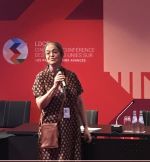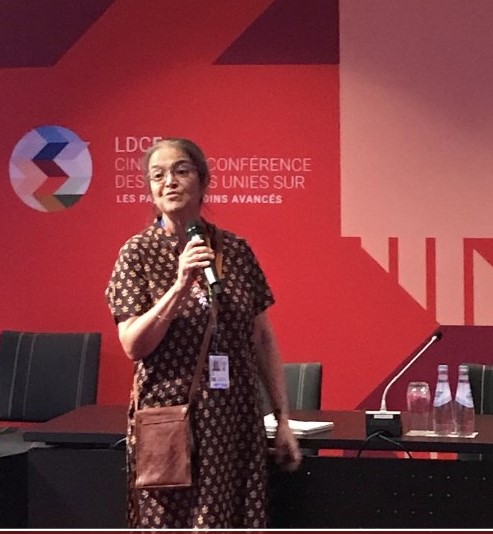The Intersecting and interlocking challenges
Published on Mon, 2023-06-05 11:50
In her introductory comments to the first plenary of the Civil Society Forum at the LDC5 Summit, Gita Sen, General Co-coordinator for Development Alternatives with Women for a New Era (DAWN) summarized civil society interventions at the opening session, noting that these “set the tone for the seriousness of the challenges LDCs face and the Global South more generally”. Of what we were told, she highlighted the following:
Sen identified the underlying basis of these challenges, which are “intersecting, interlocking and have a common basis: the huge power of private corporations and the support that governments provide to advance those corporate interests through global institutions and governance to the detriment of human rights, social justice and economic justice”. For the most disadvantaged, multiple, and interlocking crises are the crises “of food, of debt, of collapsing economies, of biodiversity and climate, of health and a pandemic that has not really ended, and on the other hand, of conflicts of rising social and economic inequality, of the growing power of private corporations, unfettered by adequate accountability”. See more about the LDC5 Civil Society Forum (Doha, Qatar, from 4 to 9 March 2023) here. Note: This summary is based on notes and recordings. It has been edited for clarity and conciseness; subtitles emphasis and clarifications were added. Karen Judd contributed to the final editing.
|
SUSCRIBE TO OUR NEWSLETTER




